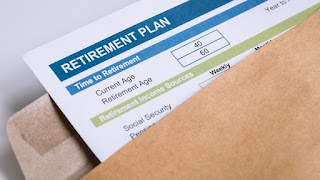When it becomes clear that you might need to try and get your finances in order, it can be hard to know
where to begin. There is so much involved in the process that it can be challenging just working out the problems and their associated solutions. Fortunately, there is always something you can do, and at the end of the day the important thing is that you begin somewhere, wherever that might be. In this article, we are going to look at some of the small changes that can drastically add up to make a big difference to your finances. Many of these will be especially useful if you are struggling to come to terms with your financial situation, so let’s take a look.
Put Your Debts In Order
No matter how much debt you have, it helps hugely if you can find a way to put them in
order of priority. This mens that you know which is the one that needs paying off first, which is second, and so on. If you get this right, you can then begin to pay off your debts much more quickly than if you don’t know whether you’re coming or going. To begin to prioritise your debts, you will first want to look for any that might be on the verge of causing a big problem in your daily life. If you have had bailiffs threatening to come round for a particular debt, then that is clearly the priority. Put those debts at the top of the list first.
But then what? Well, then you want to look at what debt is actually going to cost the most in the long term. This means sitting down and
calculating the costs of the whole debt, including the interest, so that you can know exactly how much you will have to repay. This is often a scary moment, and it’s rarely a nice feeling to see your debts laid out like that, but it is also one of the most sensible things you can do in order to get a better understanding of the true extent of your debts. Once you have your debts in priority order like this, you can then begin to pay them off - and in a way which will be much more logical and will be a lot quicker than if you were just paying them all off basically at random.
This first change is small, but if you have any debt at all it is likely to be profound in what it can do for your
financial situation. Of course, you might not have any debt at all, in which case this won't apply. Either way, once you have your debts cleared, or at least are beginning to, it is time to start thinking about saving a little money.
Change Your Savings Account
If you have had your savings account for longer than a year, you might be able to benefit from switching it over to
another provider. Savings accounts generally have generous upfront interest rates, which often last for six months to a year, and after that will drop again. For something like a cash ISA, you can remove the money whenever you want - so you might as well make the most of hat and put it into a new savings account with the introductory interest rates. This is a change which s easy to do, and yet could make you hundreds in interest over the course of the year. Of course, it does depend on how much money you put into it - but it is still going to do something for you either way.
If you do decide to do this, you will want to make sure that you know exactly what savings account is currently going to be
the best for you. You need to shop around, as this is not the kind of thing you can easily rush into. You might find it helpful to look online for advice on which savings accounts to use - there is a plethora of information out there, and much of it will be incredibly useful if you are keen on finding the best option. Get this right, and you might be much better off, so it is worth considering if you are in a rut and would like to make a big change in an easy way.
Ask For Help
There are many times in life when
asking for help is clearly the best way to go, and yet many of us can find it extremely difficult to do. When it comes to finances, a lot of people struggle especially with asking for help, as it can be so embarrassing. However, we all need assistance from time to time, and appreciating that will help you to understand that there is no shame in asking for help. Of course, there are many different kinds of help that you might need for your money situation, and it’s good to know what they are so that you can understand what you actually need to ask for, and what you might be okay without.
One of the most common kinds of help in finance is when people need a little legal help understanding a difficult or dense situation. Money and the law are tied up together very intricately, and it can help to have a professional work it out with you. A number of
pro law firms offer services in the financial area, and this can be especially useful if you are facing a difficulty, such as unpaid debts for example. This kind of help can often save your skin, so it’s worth remembering that it is there when you need it.
Besides legal help, you also have the help of friends and family. This is good to have, but it is also probably the most embarrassing situation for most people. If you are in need of actually having to borrow money, it can feel like a shame. But everyone is in this situation from time to time, and it’s worth remembering that if it happens to you too. It might just be that you need to
borrow a small amount for a short period of time, which can be frustrating but is not the end of the world. Or, if things have really taken a downturn, perhaps you need to ask for quite a lot more. Either way, there should be no shame in it, and you should feel free to ask your friends and family for help - as long as you are fair about it, and pay back anything you might need to borrow.
Invest In Something
There is often this general idea that to invest successfully you need to have a lot of special knowledge or to have a
certain amount of money to begin with. But if you have a basic understanding of how money works and you have a dollar to spare, you can start investing today. What’s more, it just might be one of the most sensible decisions you have ever made. Investing is a sure sign that you are starting to take money seriously, and it can be another one of those small changes which could make a big difference further down the line.
What you invest in is up to you, but if you only have a little money consider going for something relatively new. Investing in Bitcoin could be a good start, for example, or some simple binary options trading. Whatever it is, just make sure only to invest what you can afford to lose. Other than that, keep your fingers crossed - and who knows, you could be in luck.











